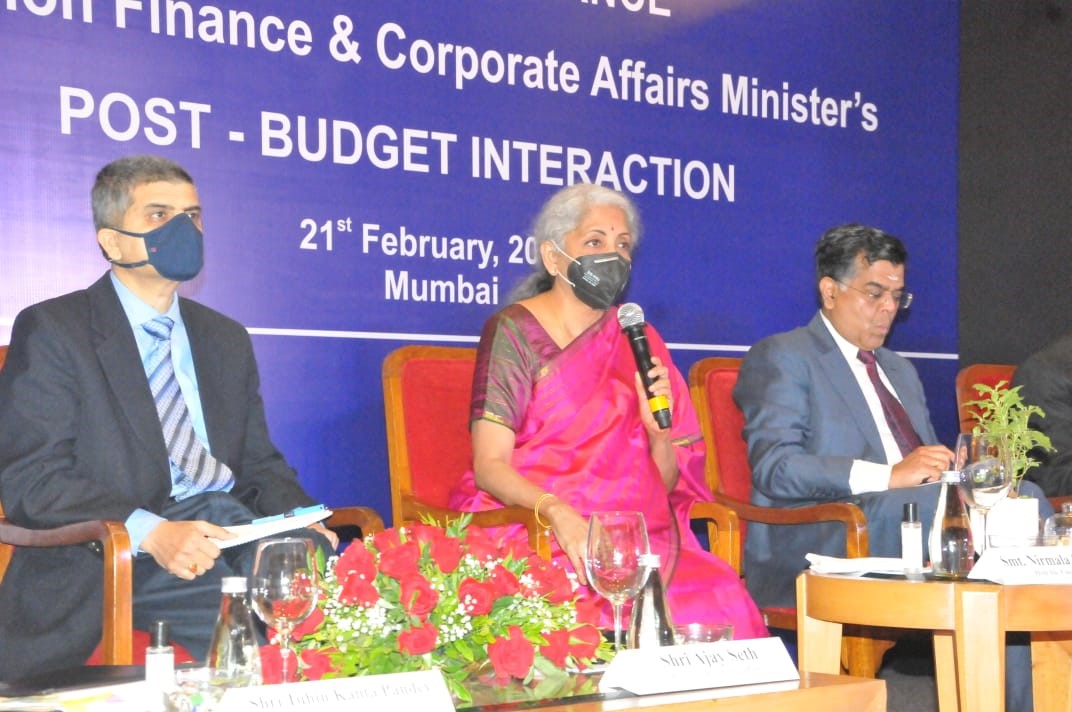“The Union Budget 2022-23 is a budget which has been made for a time when the economy is coming out of the pandemic and recovery is the most important thing all of us have to focus on. We have hence tried balancing the focus on growth and sustained recovery; continuing with the story of investing in public infrastructure building,” said Union Minister for Finance and Corporate Affairs Smt. Nirmala Sitharaman during her interaction with stakeholders belonging to industry, large taxpayers and professionals, as part of her two-day post-Budget outreach in Mumbai.
The Post-Budget interactive meeting held on 21st February 2022 in Mumbai was attended by top bankers, heads of corporates, representatives of industry and trade associations, champions of the Start-up sector and various other experts and professionals.
Smt Sitharaman said that the budget has chosen spending on infrastructure as the more favourable route to ensure a greater multiplier effect, which will also result in asset creation which can last for several years. She said that given the importance of a sustained recovery, the Budget lays priority on the revival of the economy. “It also has messages for sustainability, predictable tax regimen and we continue with the good things we took up last year – such as transparency in accounting,” she said.
The Union Minister said that the Budget also lays a blueprint for the next 25 years of India, up to India @ 100. She said that in coping with the pandemic, the nation has been able to leverage technology effectively, in helping benefits reach everyone, due to the diffusion of technology across the country. “This focus on technology and digital is something we are building on. We are building on digital not only for payment but also for filling the gaps in the education sector the pandemic has caused. We are using technology in agriculture as well, for helping farmers.”
Several issues on the economy and various sector-specific issues came up for discussion during the interaction with industry, including on strengthening the Production Linked Incentive Schemes for encouraging investment and domestic manufacturing; digital advancement and skill development across value chains, especially among women and women entrepreneurs; credit extension and increasing user-friendliness of banks; introductory new capital classes and promoting blockchain.
The Finance Minister underlined that banks will have to be a lot more customer-friendly, not in terms of taking adverse risks, but in how they engage with and serve customers.










